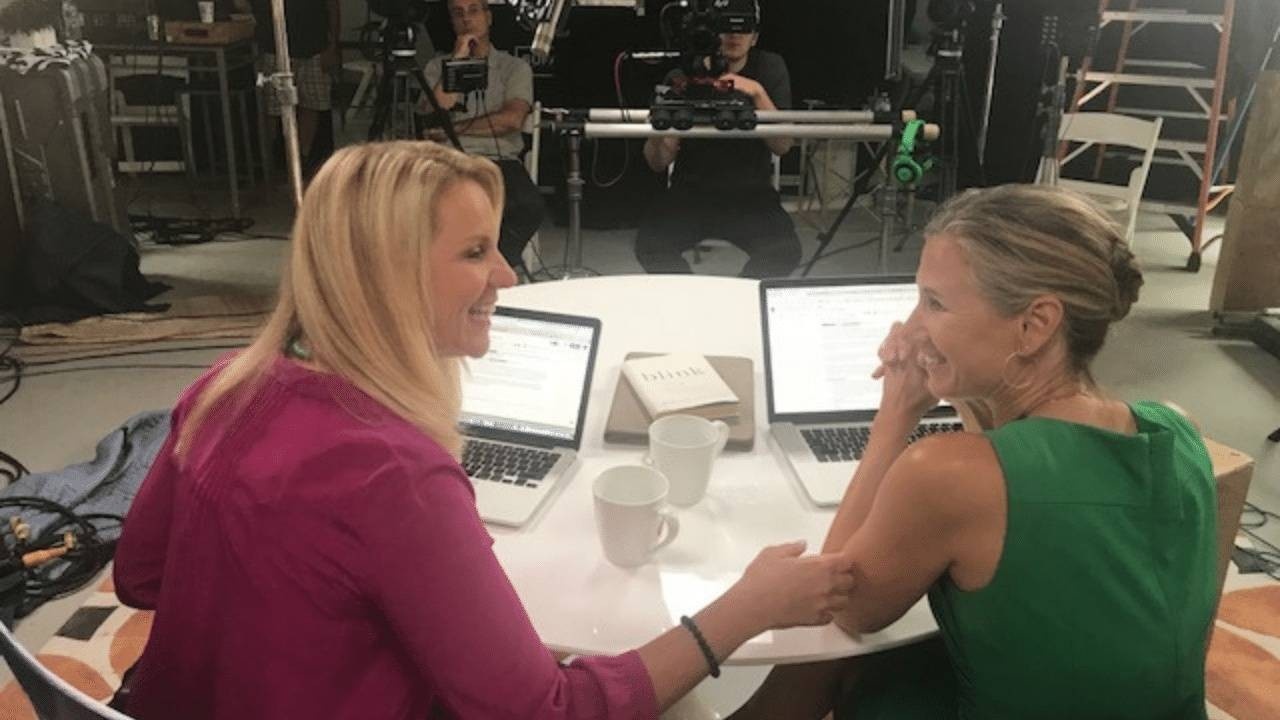The Importance of “Fluff”

Kelley and I met in the summer of 2016 at a women’s conference where we were both keynote speakers. Up first, I shared colorful stories of career-returners meant to entertain and, most importantly, to inspire. Kelley followed and led us in a powerful partner exercise on strengths. She knew her topic well and was an ebullient, engaging presenter.
But I thought her content was “fluff”.
A couple of weeks after the conference, Kelley called and suggested we meet for lunch. At the time, I was at a crossroads. Because of the good job we had done the previous decade, my Flexible Resources partners and I had very little organizational consulting work left to do, and placement, which had always been our most lucrative revenue source, had stalled with the great recession of the late 00’s. My partners are older than I. They were keeping busy with graduations, weddings, travel, new hobbies, retiring spouses, and soon-to-come grandchildren.
I, on the other hand, had kids at home, a husband still working full-time, and, because my children were preparing to leave our nest, the opportunity, and the purpose to start working even more.
So, at the time of that fateful conference, I was mid-pivot ~ transitioning from corporate consulting and placement to coaching and public speaking primarily in the “women returning to work” space.
Lunch with Kelley was lovely. Although separated by more than a decade and with very different career paths and personal interests, Kelley and I were fundamentally quite similar – most notably because of our passion for helping women navigate life and work after children.
Not one to ‘beat around the bush,’ Kelley wasted no time getting to the point. Through her successful coaching practice, she regularly worked with clients transitioning back to (or into new) work, and she didn’t have the expertise to assess their business skills or advise them on essential back-to-work tactics like résumé writing, networking, negotiating, etc. If we agreed to partner, she could send these clients to me, and I, alternatively, could send my clients to her for the foundational work I most certainly was not doing with them.
I told her I’d think about it.
The truth is, in that moment, over summer salads in the back of a sun-filled suburban café, I didn’t think my clients needed any “foundational” work.
But, as promised, I thought about it. I considered some of the stories Kelley had woven into our lunch conversation and began wondering:
Were my clients missing out on true career ‘fit’ by not diving deep to uncover their values and strengths?
Did they have negative voices (“saboteurs” as Kelley calls them) that needed silencing – voices that undermined their efforts and execution?
Were home and family commitments disrupting their work or preventing them from moving forward in their careers?
The truth was: YES to all of the above.
In fact, as I reflected on nearly two decades of helping women return to work, I realized that I’d borne witness to the non-placements, compromised placements, and downright failed placements of many candidates. And they fell neatly into four categories:
First, there was the client who returned to Accounting (for example) – a career she never much liked to begin with – without considering who she is now, 15 years later; without appreciating the new skills and expertise she had cultivated and their value in the workforce. This client got back to work, but she remained unfulfilled.
There was the client who believed the voices in her head saying “you’re too old; your skills are dated; you have too much baggage” and grabbed the first job she was offered because she had no confidence that she could get a better, more desirable one. This client took an hourly job in the school system, at the local gym or retailer, despite having the experience, credentials, and desire to aim much higher.
Then there was the client who I would assess on our intake form as “ not ready.” This woman couldn’t identify her skills or interests. She had no idea what type of work she might be qualified to do, nor could she articulate any job or workplace preferences. Without a vision of where she wanted to go, I couldn’t help her get there.
And, lastly, there was the client who was fully prepared, did her search “right”, landed the job of her dreams, and then failed spectacularly because, having made no arrangements to cover her many responsibilities at home, she ended up working the equivalent of two full-time jobs – one in the office and one at home – and underperforming at both.
Yes, actually, I had scores of clients over the years who needed Kelley’s “fluff”.
In fact, had they done that important foundational work, they could have been successful and fulfilled.
And that is how a timely business partnership and a cherished friendship began.
Kelley and I started sharing clients. We designed a two-hour, small group seminar – which grew into an 8-week live course. And then, when demand grew, we developed Prepare to Launch U, our online back-to-work course that is helping women throughout the country, right now, as I type.
Many women think the return-to-work journey begins with writing a résumé. (Few of these women are successful, by the way). But PTLU students know better. They do five weeks of work before they even begin thinking of a résumé. And the result is a really good one. Carefully mapped out. Based on deep self-knowledge and assessment. Featuring relevant, measurable skills. Created using compelling language that speaks to a targeted audience. A résumé designed to stand out, to be read, and to help land the right job.
And that’s no fluff
